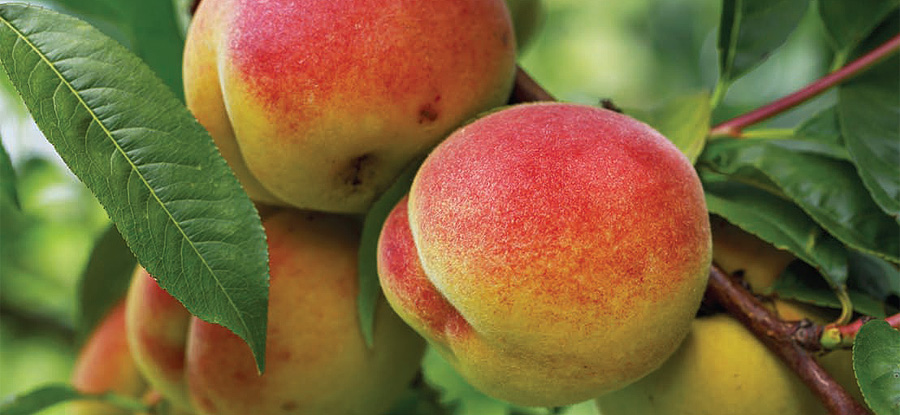
Calata Group
Ripe for the picking
Specialising in the production and distribution of stone and pome fruit, family firm Calata Group delivers 155 million kg of its products to customers around the world each year
Established in 1950 when founder Domingo Catala acquired the first warehouse, Catala Group grew over the years, with the first orchard acquired in 1963 and the second warehouse built in 2001. In 2011 the company expanded further, with a third and fourth warehouse as well as an additional 2000 hectares of land; these later developments enabled Catala Group to grow, pack and market its own fruit on a global scale.
Today the family firm remains dedicated to the production and distribution of stone and pome fruit such as apricots, peaches, nectarines, plums, pears, apples and persimmons and operates across a total plant surface area of 140,000 square metres. Within that vast area is a cooling capacity of 50,000 tonnes; this is spread throughout the centres at La Portella, Merida, Villena, Torrefarrera, Badajoz and Les Mees, the latter of which is located in France.
With a total of 2500 hectares of farmland across Spain and France, the company boasts an estimated production capacity of 155 million kg; this fruit can be sent from any of Catala Group’s centres to any destination across the globe at any time of year. Current export markets include Brazil, Argentina, the US, Chile, the UK, Germany, Holland, Belgium; Russia, Poland, Italy, France, South Africa, Algeria, China, Australia and the UAE.
Fruit available to consumers includes apricots, which Catala Group can provide five varieties: spring blush, moniqui, tsunami, kioto and farial. Each variation has its own characteristics, with size and colour varying from white, yellow, orange or red. For those seeking a sweet and fleshy peach, Catala Group offers up to 30 varieties of the fruit; this range includes transvalia, caterino, spring crest, royal gem, estrella roja, summer sun, queen lady and sweet cap. For plums, meanwhile, the group produces 16 varieties, including yellow, ana gold, extrema gold, October king and diamex, the latter of which is a sweet, thick, round and flat plum with black skin.
Since its origin, Catala Group has been committed to its social and environmental responsibilities, efforts that have been carried out from every member of the team. This strategy is used as a tool in order to improve quality, social development and a deep respect to the environment. Moreover, from 2013 onwards, there has been a change in Catala Group’s way of operating in order to enhance its sustainability principles. For example, the group has implemented a new model based on environmental respect and economic performance with the aim of lowering pesticide residues; this is in line with the group’s target of getting as close to zero MRL as possible and being more demanding than the current policies from the EU.
To reach this goal the group has applied prevention, responsibility and collaboration principles to minimise residues and manage the ones generated. Actions taken include continuous recycling, third party fruit buying with minimum pesticide residues, adherence to the Spanish empty pesticide recycling organisation SIGFITO’s policy and the implementation of pick up areas and phytosanitary treatments. Additionally the company replaces pesticides and chemical plant food with the release of predators and the utilisation of natural and organic manure.
On top of these actions, the group also focuses on energy saving through a high efficiency irrigation system, water use management and a water availability programme. Catala Group also knows soil management is crucial for agronomy and sustainability and responds accordingly with direct herb plantation, mulching and nutrient analysis. Furthermore, the group has always been sensible when it comes to the protection of animal species and believes that fauna and flora are crucial to get optimum sustainable production. In more detail, these actions include parasite control through massive capture and sexual confusion techniques, the control of weeds and natural herbs, ferirrigation and soil protection; the conservation of reserve areas such as forests, ponds and lakes, in accordance to EU legislation, animal protection, that includes nests, lairs and the promotion of box nests in order to allow birds of prey to live on farms. The group also promotes anti-electrical systems in accordance to EU Birds norm 79/409/ CEE and also promotes the use of new and better-adapted varieties.
Alongside its focus on the environment, the group is also committed to continuous improvement through research and development and has implemented new growing techniques as a result of this. These techniques include new experimental plots with the aim of marketing varieties that fulfil market demand with the goal of enhancing tasting quality, brix levels, improving pressure and texture, colouration, shape and also size. Additionally with the aim of fulfilling market demands, the group selects new varieties to extend seasons.
Through stringent adherence to both its own standards and EU legislation, as well as through working with the best nurseries and plant dealers, Group Catala can ensure the best possible quality when it comes to the varieties of fruit planted on its farms. This dedication to quality in all areas of operation has not only resulted in a global export market and strong growth, but also the attention of the London Stock Exchange, which included Catala Group among the 75 Spanish firms highlighted in its 1000 Small and Medium Companies to Inspire Europe. Having achieved this honour, the future looks positive for Catala Group as it benefits from the fruits of its labour and focuses on further increasing its market share throughout Europe and the world.